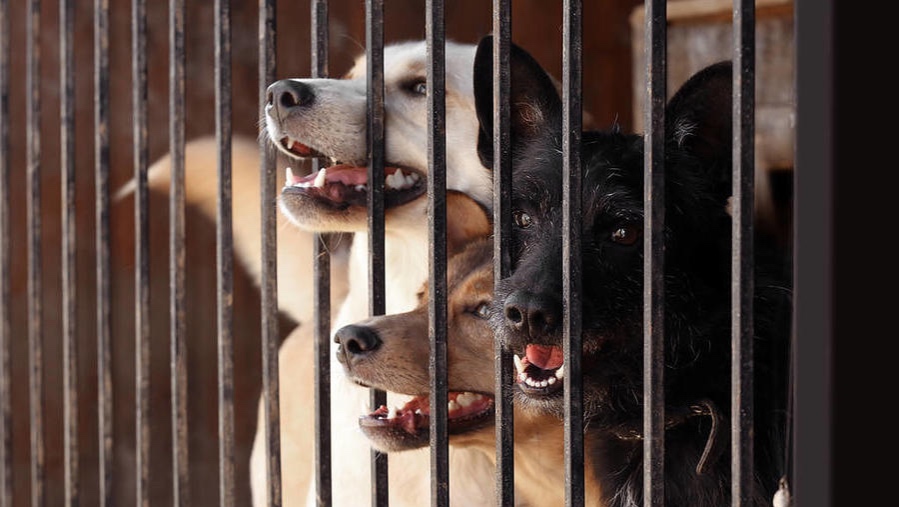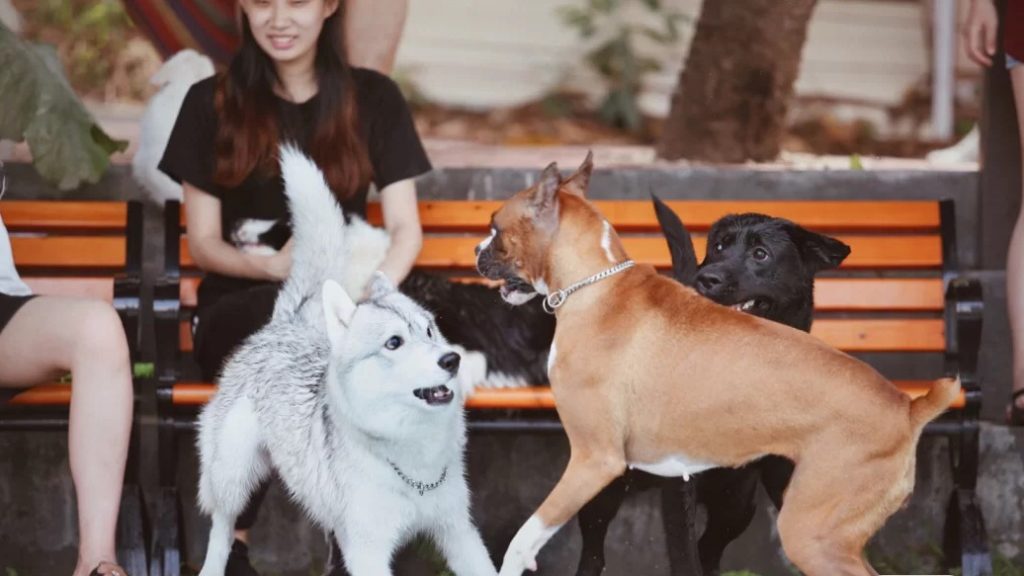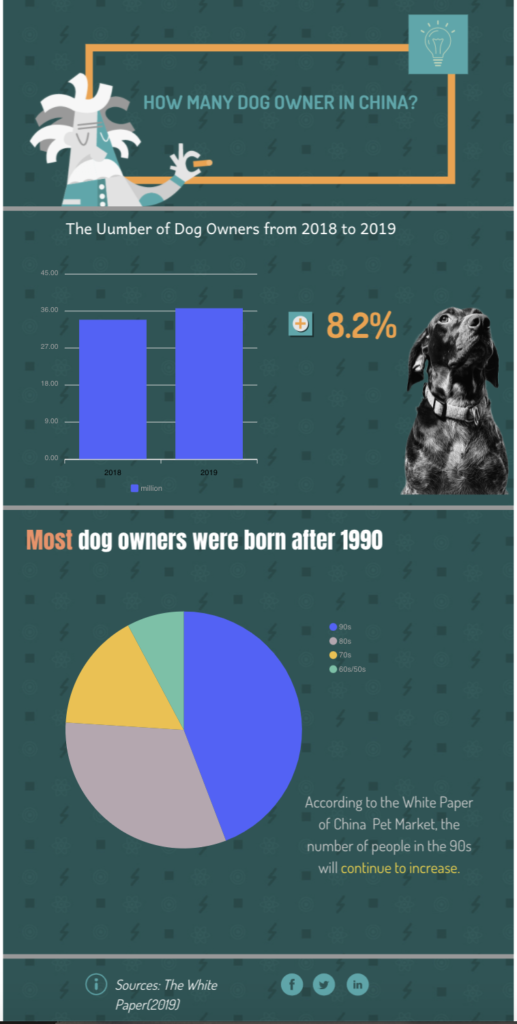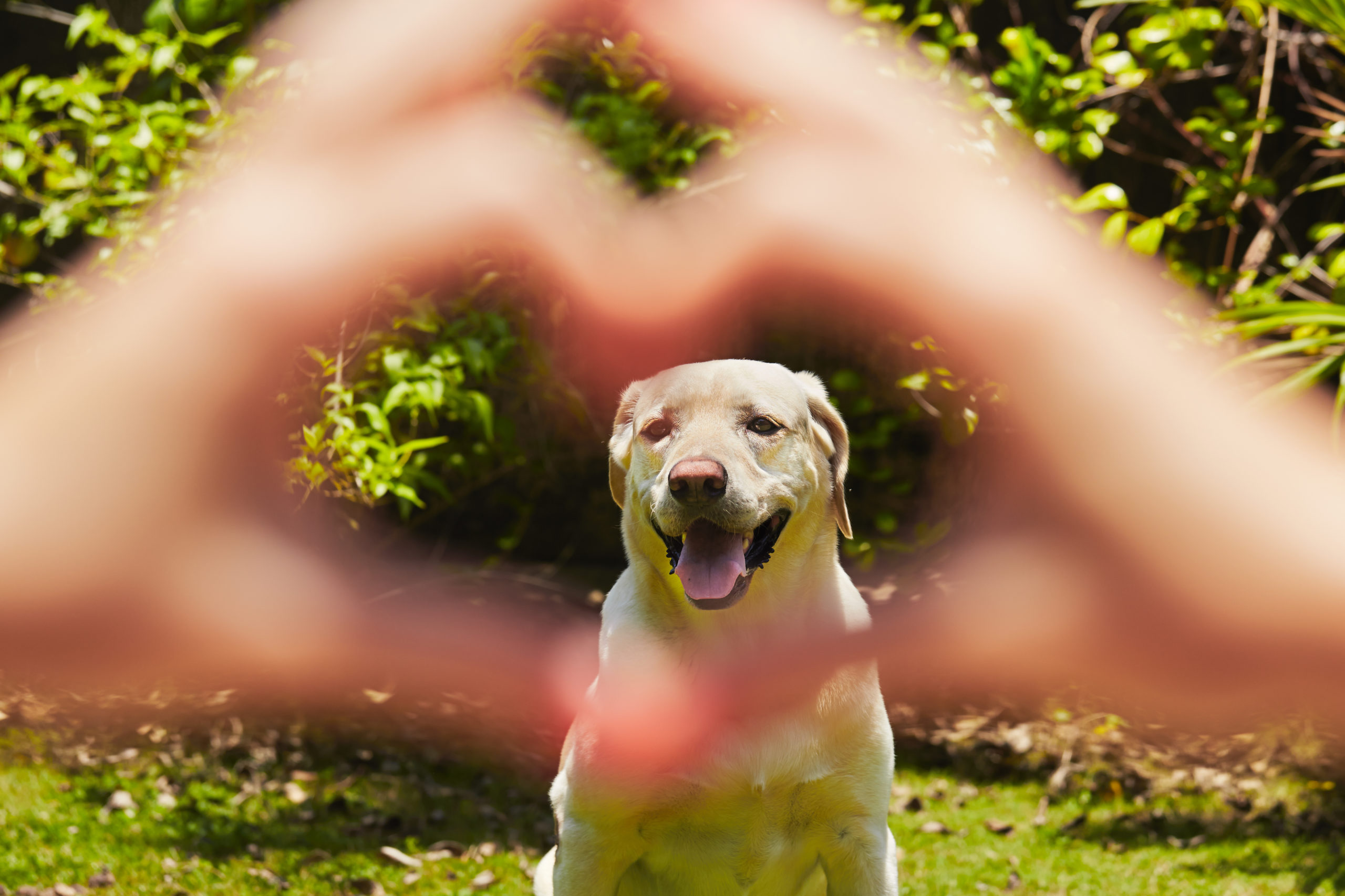China is a country that is known for small lap dogs, but in recent years larger animals have become more popular. So what is driving the fashion for large dogs and who are the people who want to own them?
Yazhen Chen still remembers the meal her grandmother served her 20 years ago. It was a thin soup that tasted strangely oily,“This is an old recipe from my father’s northern hometown”,said her grandmother when she finished the meal, she sked, “grandma, what kind of meat is this? it tastes different”. Then, the old lady told her that it was made of a dog, which could be easily bought anywhere in China, causing Chen‘s pain, anxiety and tears.
“In just two generations, people’s attitudes towards dogs have changed dramatically in Chinese cities”, Chen said.

Actually China has a much more interesting relationship with dogs, from the very small to the working dog. For example, in ancient China, a Beijing Pug was a trained rat catcher; Chow Chows, its Chinese original meaning ‘poodle’, was a watchdog; and Shih Tzus was a favorite of the emperor and the royal family. There are also some hybrid dogs used as working dog, which are trained to do sheep herding, sledding, warehouse keeping. but now increasingly go to a park in Beijing and you will see Labrador, Husky and Samoye everywhere.
Large dogs began to enter China’s pet market and quickly gained the preference of dog owners, which may have something to do with the loose policy implemented by the government at the end of last century. Before that, it was illegal to keep a pet dog in Beijing. Almost no one kept the dog as a pet. In 1993, the Beijing government gave citizens the right to keep pets freely, and the governments around the country have launched similar loose policies. In a short period of 20 years, dogs, once used to be the working tools of Chinese people, have become the pet of Chinese owners.
According to the White Paper on China’s pet market in 2019 (consumption report), the number of pet dogs owned by urban residents in China will reach 100 million in 2023, and the number of dog owners in cities and towns will reach about 60 million, and will maintain an annual growth rate of 10%.

One thing could be noted is that as pets move into more Chinese homes, bigger dogs are becoming more popular with to owners than ever before. In June 2019, Pengpai news launched a vote on the internet called “the top five most popular breeds”. According to the results, the report showed that four kinds of large dogs stood out, namely, golden retriever, Labrador, Husky and samoyer, with two thirds of the total number of choosing. In contrast to the previous report released by the China Pet Association in 2005, it mentioned that small breeds such as Pomegranate, Chihuahua and Beijing dog are the choice of most Chinese families.
China‘s economy has been successful for decades, and dog owners’ preference for big dogs is likely to benefit from better economic conditions, Zhang Yi, a researcher at the China Academy of Sciences, said on his Weibo. The White Paper also revealed the economic factors behind the popularity of big dogs. It said that the development of China’s pet market benefited from the growth of per capita GDP, the development of central and western regions, and the expansion of solitary groups. “Generally speaking, the cost of large dogs is high, and the increase in per capita income provides Chinese dog owners with material conditions to keep big dogs”, Zhang said.
In addition, the White Paper also points out that 45% of the people living alone in first tier cities, especially millennials (those born after 1990), are likely to occupy more than half of the big dog market in the future. Yu Yang, a 27 year old bank employee living alone in Chengdu, bought a Labrador last week. “I work a lot of hours every day and always under too much pressure. When I get home and see the lights are not on, I can feel a suffocating sense of loneliness”, she said. Several colleagues who had raised Labrador inspired her interest in big dogs, a breed of big dog that is considered a docile companion dog. “Its good temper and big size give me a great sense of security. I don’t feel like I’m a lone ranger in this city anymore”, she said.

Doctor Zhang Yi named these millennials who are keen on keeping big dogs dog slaves. “Because they can pay a lot of time and money for their big dogs, dog owners of this age group are considered to have low income. They can spend most of their income for big dogs and serve them unconditionally, so I gave them this name”, said Dr. Zhang Yi.
Zhang’s claim is not groundless. According to the Forward the Economist report, lower income people have a higher proportion of pet keeping, 75.8% of dog owners earn less than 10000 yuan (about 1100 pounds) a month, and these people spend more than half of their whole income for their dogs every month.
“The increase in the number of families with few children and DINK families, the accelerated aging of the population, and the increase in the number of empty nesters are the main reasons for the rapid increase in the number of pet raising in China”, Zhang said.
Since the announcement of reform and opening up in 1979, China has become a more open country. “The introduction of a large number of foreign cultural works, as well as the large number of commendatory reports on guide dogs by Chinese news media in recent years (they are believed to be usually played by golden retrievers, Labradors and other breeds), may also have affected the taste of the younger generation in dog ownership”, Zhang said.
“I fell in love with Japanese Akita, because an American film is called ‘Yagong, a loyal dog’ ”, said Miaomiao Jia, 25, after watching this film, she was determined to get Akita, who was regarded as loyal and brave as Yagong. Meiyang Li, 30, is interested in keeping a docile and intelligent golden retriever because of the large number of reports about guide dogs (usually golden retrievers or other large breeds) in the Chinese news media in recent years.
This does not seem to be a minority opinion. According to a survey called “reasons for choosing big dogs” launched on Weibo in July 2019, 51.3% of the 50,000 dog owners who participated in the voting chose to have big dogs because of the influence of cultural works such as TV dramas, movies, advertisements, news stories, etc. 20.9% of the them chose their beautiful appearance and gentle personality. In addition, interestingly, it is also mentioned in the report that a considerable number of male owners believe that large dogs are bulky and easy to become the focus of attention. They have big dogs to increase the chance to chat with girls.
In a November 2019 news report, people’s daily criticized some dog owners for using large dogs as a symbol of wealth. “It’s not groundless, after all, it costs more to have a big dog”, said Wang Yang, a doctor at Chengdu Union Medical College Pet Hospital. Where he works, big dog owners are often generous. “A simple example, when you buy a dog an oral anthelmintic, you have to determine the amount by weight. The more you use, the more you spend”, he said.

“I know a female college student who has three giant Teddies, and I have seen her photos uploaded on social media. It is often her three dogs that appear with luxury bags and cars”, Wang said.
The People’s Daily article also criticized Chinese celebrity Sicong Wang, the son of China’s richest man, Jianlin Wang, for showing off his wealth on social media. On Wang’s Weibo account, an Apple watch full of four legs for his Alaskan dog has aroused heated discussion among netizens and caused widespread social impact. “Has big dog become a status symbol?” One netizen wrote such a comment under his Weibo blog.
Chinese dog owners have argued that owning a big dog is a status symbol. “There are people who use dogs to show their status, but it’s open to question whether all dog owners have this idea”, Dr. Zhang said.
About to leave her hometown to work in another place, Yazhen Chen bought a golden retriever for her parents. “I want to give them a dog to accompany them instead of me”, she said. She specially chose a gentle golden retriever puppy. “Golden retrievers are considered to have a very high Intelligence Quality and for first-time dog owners like my parents, it is much easier to successfully tame them”, she said.
